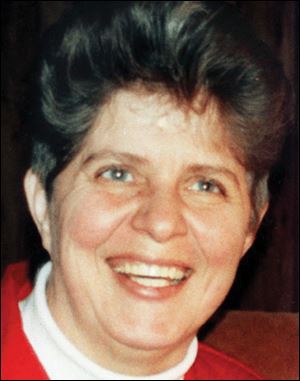
Execution of juveniles is outlawed as ruling by justices affects 72 death-row prisoners
3/2/2005
Christopher Simmons
WASHINGTON - The U.S. Supreme Court ruled yesterday that it is unconstitutional to execute juvenile offenders who were under age 18 when they committed a capital crime, saying the practice offends the "evolving standards of decency" that must guide interpretation of the Eighth Amendment's ban on cruel and unusual punishments.
"The age of 18 is the point where society draws the line for many purposes between childhood and adulthood," Justice Anthony Kennedy wrote in his majority opinion in the 5-4 ruling. "It is, we conclude, the age at which the line for death eligibility ought to rest."
In a caustic dissenting opinion, Justice Antonin Scalia said that, far from reflecting a national consensus against executing minors, the majority opinion consisted only of "the subjective views of five members of this court and like-minded foreigners."
Yesterday's decision set aside the death sentence of Christopher Simmons, a Missouri man who was a 17-year-old high school junior when he hog-tied a neighbor, Shirley Crook, and threw her into a river to drown after telling two friends they could "get away with it" because they were minors.
The ruling will also prohibit execution of defendants in pending cases - including Lee Boyd Malvo, one of the snipers who terrorized Washington and its suburbs in 2002.
Because he was 17 when the crimes occurred, Malvo was tried in Virginia - which permitted the execution of juveniles. But in his first trial, in Fairfax County, he was sentenced to life in prison. Until yesterday, prosecutors had been planning to retry Malvo in another Virginia county where one of the shootings occurred, in hopes of winning a death sentence.

Shirley Crook
In all, the decision spares the lives of 72 death-row inmates in 12 states where, until yesterday, it was legal to execute murderers who were 16 or 17 at the time of their crimes.
The new ruling effectively overrules Stanford vs. Kentucky, a 1989 decision in which the court refused to hold that executing 16 and 17-year-olds was cruel and unusual punishment. (In a 1988 ruling, the court had overturned a death sentence for a defendant who was 15 at the time of his crime.)
Opponents of the death penalty for juveniles had their hopes raised three years ago when the Supreme Court reversed itself and ruled 6-3 that executing the mentally retarded was cruel and unusual punishment. In that ruling, the majority cited a national consensus reflected in the fact that 16 states that had permitted executing the retarded in 1989 had changed their minds and outlawed the practice.
In yesterday's ruling, Justice Kennedy conceded that the trend against executing juveniles was "less dramatic" than that against executing the retarded. But he said it was "significant" that five states that allowed the execution of minors when the court upheld the practice in 1989 have abandoned it since then.
"The objective indicia of consensus in this case - the rejection of the juvenile death penalty in the majority of states; the infrequency of its use even where it remains on the books, and the consistency in the trend toward abolition of the practice - provide sufficient evidence that today our society views juveniles, in the words [the court] used respecting the mentally retarded, as 'categorically less culpable than the average criminal,' " Justice Kennedy wrote.

He cited two other reasons for abolishing the death penalty for juveniles: evidence from psychologists that adolescence is marked by "impetuousness and recklessness" and the fact that "the United States now stands alone in a world that has turned its face against the juvenile death penalty."
Justice Kennedy, a moderate conservative who is frequently a swing vote on the court, was joined in the majority by four liberal justices: John Paul Stevens, David Souter, Ruth Bader Ginsburg, and Stephen Breyer.
Dissenting were Chief Justice William Rehnquist and Justices Sandra Day O'Connor, Scalia, and Clarence Thomas.
Justice O'Connor "respectfully" dissented in a temperate opinion in which she accepted the majority's use of "evolving standards of decency" as a guide but disagreed that such standards justified a blanket ban on death sentences for minors.
Information from the Los Angeles Times was used in this report.
Contact Michael McGough at:
mmcgough@nationalpress.com
or 202-662-7025.